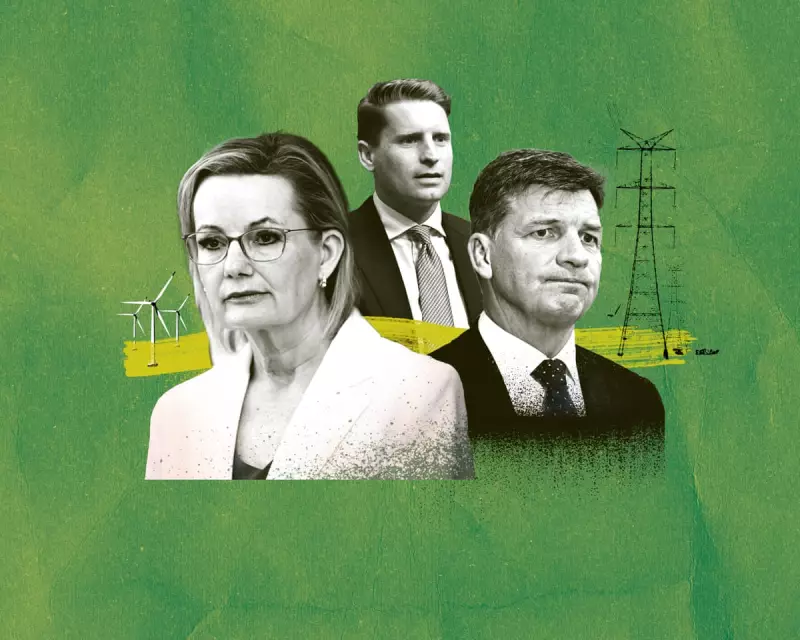
In a dramatic 48-hour period that exposed deep internal divisions, the Australian Liberal Party has formally abandoned its commitment to net zero emissions by 2050. The decision marks a significant victory for the party's conservative faction and represents a major shift in Australia's climate policy landscape.
The Conservative Show of Force
The turning point came on Wednesday when more than a dozen Liberal MPs assembled in the Parliament House office of Queensland LNP backbencher Henry Pike. The gathering, organised by Pike and fellow Queenslander Garth Hamilton, brought together colleagues opposed to the net zero target for a coordinated march into a crucial party-room meeting.
Among those present were prominent figures including Jacinta Nampijinpa Price, Sarah Henderson, Tony Pasin, Jonathon Duniam and Claire Chandler. However, the most significant participants were Andrew Hastie and Angus Taylor - two men considered likely leadership contenders who had previously been portrayed as representing different factions within the party's right wing.
The optics of Taylor and Hastie standing shoulder-to-shoulder as they walked toward the Coalition party room sent a powerful message to Liberal leader Sussan Ley: dump net zero or face consequences. This united front effectively ended months of internal campaigning to preserve the climate commitment.
Overwhelming Support for Abandoning Climate Target
During the marathon party-room meeting that followed, the strength of opposition to net zero became abundantly clear. Of the 49 speakers who addressed the meeting, 28 supported completely jettisoning the target, while only 17 expressed desire to retain it in some form. Four MPs remained undecided.
The sentiment had been building for months but became irrepressible after the Nationals confirmed their position against net zero on 2 November. Moderate Liberals grew suspicious that some of their rightwing colleagues had been conspiring with the Nationals, with one MP describing such coordination as "akin to treason."
Shadow defence minister Angus Taylor, who served as energy minister when Scott Morrison committed Australia to net zero in October 2021, told the closed-door meeting it was time to "move on" from net zero and create political differentiation from Labor.
The Final Decision and Its Consequences
Despite last-minute appeals from moderates, the decision announced just after 2:15pm on Thursday formalised the abandonment of the net zero target. Deputy Liberal leader Ted O'Brien, who had remained quiet on his position for months, turned against the target, as did Ley's numbers man Alex Hawke.
Liberal leader Sussan Ley confirmed the dramatic policy shift, stating unequivocally: "Make no mistake, we are not pursuing net zero." Instead, the party will allow moderate MPs to describe carbon neutrality as merely a "welcome outcome" - a trivial aspiration that leaves the party with significant policy inconsistencies.
The decision creates immediate challenges for Liberal MPs and candidates in urban areas, who must now defend a policy that commits Australia to remain in the Paris agreement while flagrantly breaching its obligations. The party promises to curb carbon pollution while simultaneously supporting coal-fired power stations and dismantling Labor's emissions reduction policies.
One pro-net zero MP acknowledged the difficulty, stating: "It is going to be really hard to show people that we get it." The outcome represents a decisive win for conservatives but leaves the Liberal Party grappling with how to present a coherent climate policy to voters increasingly concerned about environmental issues.






